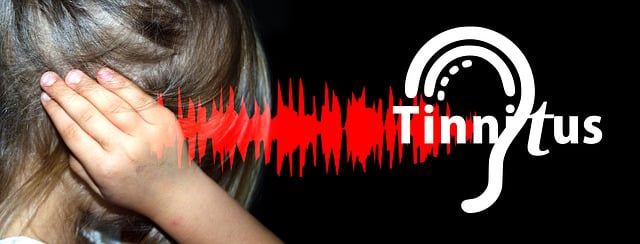Introduction
Tinnitus, often described as a persistent ringing, buzzing, or hissing sound in the ears, affects millions of people worldwide. While there’s no one-size-fits-all cure for this enigmatic condition, emerging research suggests that the ketogenic diet may offer hope and relief to those suffering from tinnitus. In this article, we’ll delve into the potential benefits of the keto diet for tinnitus, exploring the science behind it and providing actionable steps for those looking to manage their symptoms more effectively.
Understanding Tinnitus
Tinnitus is a perplexing auditory condition characterized by the perception of noise in the ears when no external sound source is present. This condition can be temporary or chronic and may manifest in various forms, including ringing, buzzing, whistling, or hissing. It often accompanies hearing loss, but it can also occur independently. Tinnitus can be debilitating, affecting one’s overall quality of life, sleep, and mental well-being.
The Ketogenic Diet: A Brief Overview
The ketogenic diet, or keto for short, is a high-fat, low-carbohydrate dietary approach that has gained popularity for its potential health benefits beyond weight loss. In a typical keto diet, the majority of calories come from fats, with moderate protein intake and minimal carbohydrates. By drastically reducing carbohydrate consumption, the body enters a state of ketosis, where it primarily burns fats for energy, producing ketones.
The Keto-Tinnitus Connection
While research on the link between the keto diet and tinnitus is in its early stages, several mechanisms have been proposed to explain the potential benefits of this dietary approach:
- Inflammation Reduction: Chronic inflammation is associated with a variety of health conditions, including tinnitus. The keto diet’s low carbohydrate intake can reduce inflammation, which may help alleviate tinnitus symptoms.
Actionable Step: Start by reducing your intake of processed and refined carbohydrates and focus on consuming more anti-inflammatory foods like fatty fish, olive oil, and leafy greens.
- Blood Sugar Stabilization: The keto diet can help stabilize blood sugar levels by minimizing the spikes and crashes associated with high-carb diets. Unstable blood sugar levels may contribute to tinnitus in some individuals.
Actionable Step: Limit your intake of sugary and high-carb foods and opt for whole, low-glycemic foods to maintain stable blood sugar levels.
- Improved Blood Flow: Tinnitus can be linked to poor blood flow in the inner ear. The keto diet’s emphasis on healthy fats and reduced carbohydrates may promote better circulation, potentially benefiting those with tinnitus.
Actionable Step: Incorporate foods rich in omega-3 fatty acids like salmon, walnuts, and flaxseeds into your diet to support cardiovascular health and blood flow.
- Reduced Oxidative Stress: Oxidative stress, which occurs when there’s an imbalance between free radicals and antioxidants in the body, has been implicated in tinnitus. The keto diet’s antioxidant-rich foods may help counteract this oxidative stress.
Actionable Step: Include antioxidant-rich foods like berries, dark chocolate, and green tea in your diet to combat oxidative stress and support overall health.
- Enhanced Brain Health: Tinnitus is often associated with disruptions in the brain’s auditory processing. The ketones produced during ketosis have neuroprotective properties that may benefit brain health and reduce tinnitus-related symptoms.
Actionable Step: Maintain a well-balanced keto diet with adequate fat intake to support your brain’s health.
A Personalized Approach to Keto and Tinnitus
Before embarking on a ketogenic diet to address your tinnitus, it’s essential to consult with a healthcare professional, especially if you have any underlying health conditions or are taking medications. A personalized approach is crucial, as the keto diet may not be suitable for everyone.
Actionable Step: Seek guidance from a healthcare provider or registered dietitian who can help you tailor a keto diet plan to your specific needs and health status.
A Sample Keto Diet Plan for Tinnitus
If you and your healthcare provider decide that the keto diet may be a beneficial approach to managing your tinnitus, here’s a sample meal plan to get you started:
- Scrambled eggs with spinach and feta cheese cooked in olive oil
- A side of avocado slices
- Grilled chicken breast with a mixed green salad (lettuce, cucumbers, tomatoes)
- Dressing made with olive oil and vinegar
Snack:
- A handful of unsalted almonds or walnuts
Dinner:
- Baked salmon with a lemon-dill sauce
- Steamed broccoli or asparagus
Dessert:
- A small serving of Greek yogurt with berries
Remember: Hydration is essential. Make sure to drink plenty of water throughout the day, as dehydration can exacerbate tinnitus symptoms.
Conclusion
While the keto diet’s potential benefits for tinnitus are promising, it’s important to approach this dietary approach with caution and under the guidance of a healthcare professional. Tinnitus is a complex condition with various underlying causes, and what works for one person may not work for another. By making informed dietary choices, managing inflammation, stabilizing blood sugar, and promoting overall health, you can take proactive steps to potentially alleviate the symptoms of tinnitus and improve your overall well-being. Don’t let the ringing in your ears define your life – explore the keto diet as a potential tool in your tinnitus management toolbox.



